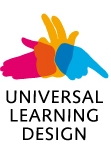The number of universities offering services for students with disabilities has grown considerably over the last decade worldwide. Nevertheless, not all students with a disability receive adequate level of support, even in the same country. Providing effective academic services for students with disabilities demands among others thorough planning, appropriate organizational scheme, human resources with specific expertise, advanced technological support, considerable implementation effort and functional evaluation. This paper presents a model of accessibility service provision for students with disabilities in higher education. The development of the model is based on the analysis of the requirements of students with disabilities. The methodological designing of the services critically takes into account both Design for All and Individual Accommodation approaches. We emphasise the important role of advanced ICT systems for the effective service organization, management and provision and we describe the necessary specific applications. The involvement of public (environmental modifications e.g. in the libraries, student laboratories, infokiosks, etc.) as well as personal Computer Assistive Technologies is also presented. The services for the students with disabilities discussed in the paper include: recording of the needs of the students, evaluation of students’ abilities, provision of Personal Assistive Technologies, accessibility of structure environment, transportation, psychological cancelling, provision of accessible text books and other educational content, training of the staff and the volunteers, developing of guidelines (e.g. for tests and examinations, for producing accessible educational content), accessible workstations in libraries and labs, evaluation of websites’ accessibly, structural arrange of volunteer work for helping the disabled students, Video Relay Service and Sign Language Interpretation for deaf students, organizing seminars and meetings, dissemination of accessibility know-how (website, leaflets, posters, booklets). The organizational structure (at university, faculty and department levels for both the academic staff and the other employees), the involvement of disable students in the decisions along with legislative, financial and standardisation issues are also discussed. The application of the above model over the past few years in the University of Athens, the largest higher education institution in Greece, will be also presented.









